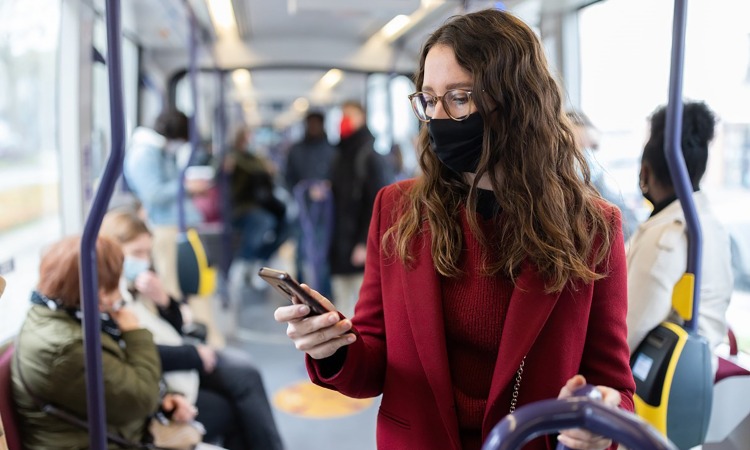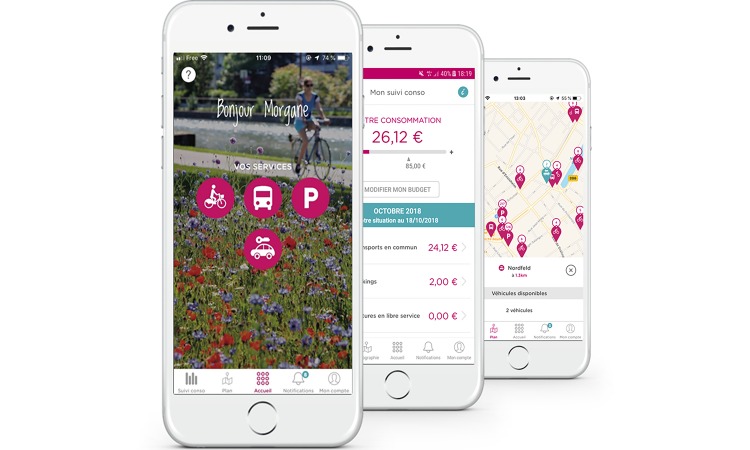Transdev: The first MaaS operator in the world
- Like
- Digg
- Del
- Tumblr
- VKontakte
- Buffer
- Love This
- Odnoklassniki
- Meneame
- Blogger
- Amazon
- Yahoo Mail
- Gmail
- AOL
- Newsvine
- HackerNews
- Evernote
- MySpace
- Mail.ru
- Viadeo
- Line
- Comments
- Yummly
- SMS
- Viber
- Telegram
- Subscribe
- Skype
- Facebook Messenger
- Kakao
- LiveJournal
- Yammer
- Edgar
- Fintel
- Mix
- Instapaper
- Copy Link
Posted: 8 March 2023 | Yoann Kienne - Transdev | No comments yet
Yoann Kienne, MaaS & On-Demand Transportation Project Manager at Transdev, discusses the various projects that the company has been working on to advance the implementation of Mobility-as-a-Service, as well as the significant role that mobile applications play in making MaaS more easily accessible.


Credit: Transdev
Transdev is a multinational transport operator and mobility integrator. The company, based in 18 countries, operates 15 modes of transportation.
We have successfully launched or helped to launch several Mobility-as-a-Service (MaaS) projects in Europe:
- We have been part of MaaS Global (FI) since 2016
- We invested in Tranzer (NL) in early 2017
- Amaze (NL) was supported by our local team
- Moovizy 2 (FR) was launched in 2020
- Compte Mobilité Mulhouse (FR) was launched in 2018.
Transdev is positioned on the operator market, supporting public transport authorities (PTAs) in the management of their MaaS projects and helping them to maximise the potential of the tools that they have built.
Gathering all transportation modes in Saint-Etienne metropolis using Moovizy 2
Launched in September 2020, Moovizy 2 was the first MaaS app operated on a metropolitan scale in France, covering 53 cities and more than 400,000 inhabitants. In addition to monitoring their consumption in real-time, travellers can also receive monthly receipts through the app.
Moovizy 2 makes trips easier by breaking down the barriers between the various modes of transport”
Moovizy 2 makes trips easier by breaking down the barriers between the various modes of transport. All the modes of transport available in the area are combined, providing users with a multimodal calculator in real-time and ensuring pre-order and payment through a single application.
Despite the challenging pandemic situation, Moovizy was quickly adopted by many travellers and has made significant progress since its launch. There are now more than 1,500 active accounts every month, and the app is opened 12,000 times a day on average.
In addition, since its launch in September 2020, 2.5 million riders have made searches through the app, while the number of downloads has tripled and the number of purchases has doubled.
The app offers three fully-digital payment types:
- Pre-payment
- Immediate payment
- Post-payment.
For the use of different modes, the app also ensures the following functionalities:
- Public transport (STAS network): trip overview, tickets and vehicle geo-location
- Bike-sharing (Vélivert): scheduling and renting, access to real-time information and unlocking
- Car-sharing (Citiz): account creation, vehicle reservation, customisation of the trip and opening car doors
- Taxis (Radio Taxis 42, connected through Karhoo): taxi order and tracking on the map, taxi pre-order, option choice and taxi contact
- Regional carpooling (Mov’Ici): access to the mobility offer and reservation
- Trains (SNCF): real-time information.
We have also added the public transportation information of connected cities, such as Lyon, where many Saint-Etienne inhabitants commute every day.


Credit: Transdev
Making trips easier using Compte Mobilité Mulhouse
Launched in 2018, the Compte Mobilité Mulhouse app was developed under an experimentation convention between Cityway, Transdev, Mulhouse Alsace Agglomération and Caisse des Dépôts Group.
The project aimed to integrate all of the different modes of transportation available in the PTA’s territory. Registration for each mode of transport is done through the app, as well as the unlocking, payment (single invoice) and consumption monitoring.
Within Compte Mobilité, users can find out about the different types of mobility that are on offer, including public transportation (Soléa, Transdev), bike-sharing (Vélocités, JC Decaux), bike rental (Mediacycles), car-sharing (Citiz) and parking (Indigo and Citivia). Physical support is also available for users who do not want to systematically use their phone.
In 2022, Mulhouse Alsace Agglomération re-vamped the app, in partnership with Monkey Factory.
Fostering modal shift with MaaS
Transdev strongly believes that MaaS is a relevant lever to make daily local mobility more practical and sustainable”
Daily local mobility represents 98 per cent of all trips, accountable for 80 per cent of greenhouse gas (GHG) emissions. Transdev strongly believes that MaaS is a relevant lever to make daily local mobility more practical and sustainable.
Shifting mobility behaviours does not only rely on a MaaS mobile application, but mainly on the level of mobility on offer and its quality. The MaaS application informs travellers about the different options that are available to travel from point A to point B, and then offers different subscription packages to match the traveller’s expectations. Combining the right information with the relevant transportation offer level and financial incentives are key to fostering modal shift.
But how can we change the behaviour of commuters?
We have to keep in mind that MaaS is not just a complex digital tool, but, above all, a means to help PTAs to make modal shift happen in their communities”
The answer to this is simple – the mobility industry has to develop an in-depth understanding of the reasons why people do not switch so easily from individual cars to shared mobility (such as public transport, bikes, car-sharing, car-pooling, scooters and mopeds). To do so, Transdev co-leads a working group, Movin’On, with CGI about MaaS and its business models. In this workshop, we address the leverage of behaviour change with all the components of mobility, including comfort, security, cost, sensation of comfort and time efficiency. All of these parameters will be analysed via the generalised cost model and addressed thanks to incentives through a MaaS platform. Then, we will be able to offer a relevant platform for users.
Another objective of this project is to find the right business model to make MaaS profitable and sustainable. Different partners are part of this community, such as mobility service providers, study organism and PTAs. The restitution of this workshop is expected for 2023.
In order to turn MaaS into a success, clarifying the governance is mandatory. We believe MaaS projects might be led by public authorities, such as PTAs, to reach political, social and ecological objectives and make MaaS a common good in organising public services, funded mostly by the same PTAs. To manage the MaaS services, PTAs will have access to all of the data collected by the application and will be able to change or modify their mobility offer (modes, routes, vehicles, multimodality and intermodality).
Finally, we have to keep in mind that MaaS is not just a complex digital tool, but, above all, a means to help PTAs to make modal shift happen in their communities.


In his previous role, Yoann was involved in the implementation of MaaS at Île-de-France Mobilités as a consultant.
Related topics
Accessibility, Air Quality, Mobility Services, Multimodality, Passenger Experience, Public Transport, Sustainable Urban Transport, Ticketing & Payments
Issue
Issue 4 2022
Related modes
Bikes & Scooters, Car-sharing, Taxi
Related countries
France
Related organisations
Transdev
Related people
Yoann Kienne








